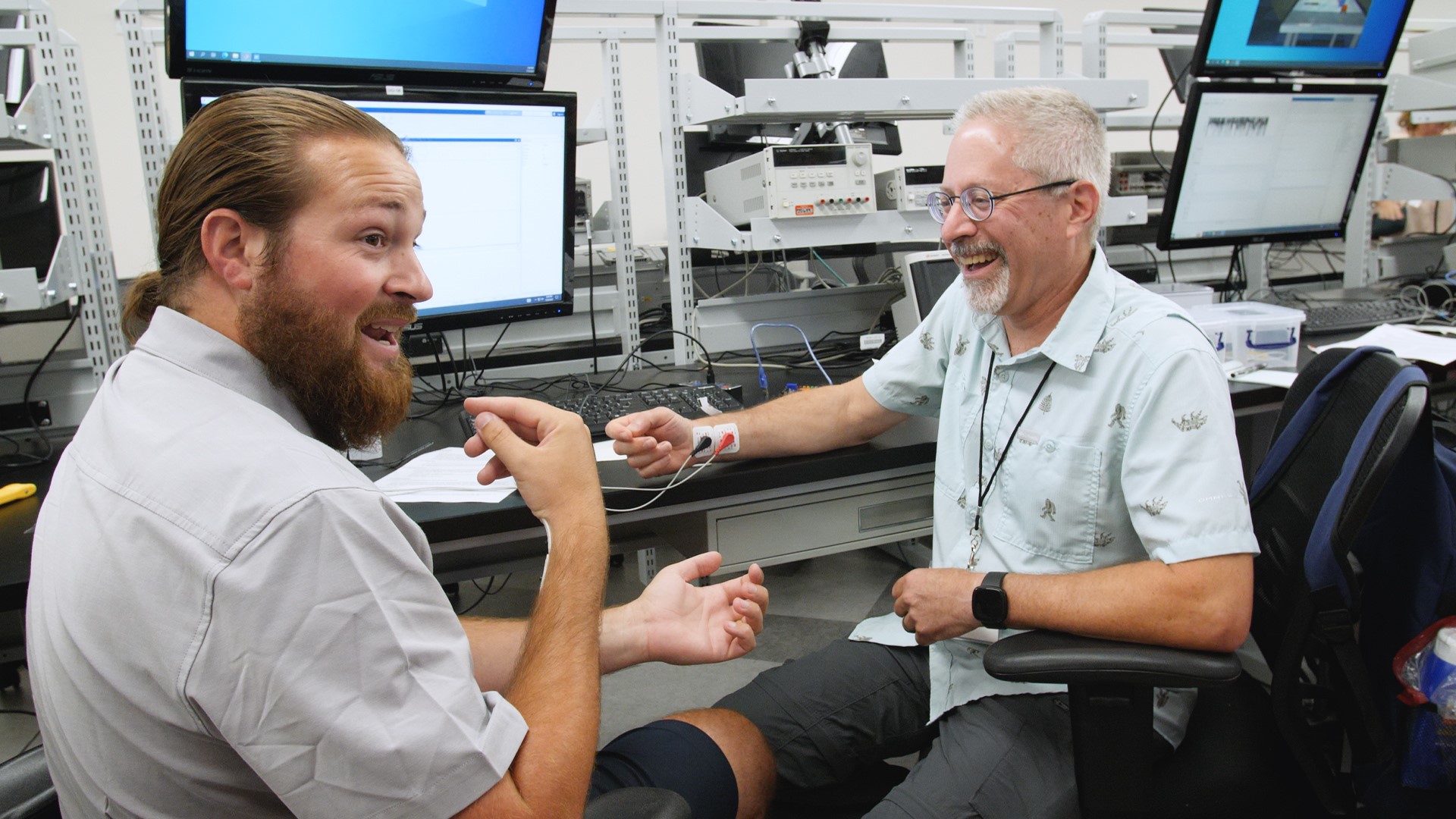In a lab in the U’s Craig H. Nielsen Rehabilitation Hospital, so new that plastic wrap and tape still enclose monitors and equipment cabinets, three or four middle school science teachers group around research assistant and recent MS graduate Bret Mecham, who is wearing a bionic exoskeleton on his arm.
The bionic arm moves up and down. “I’m not controlling this,” Mecham tells the audience, “He is—” indicating a teacher who is holding an electrode on his forearm. As the teacher flexes and relaxes, the electrode picks up electrical signals in his muscle. Those signals translate into mechanical motion by the bionic arm. Such an arm, Mecham says, can restore strength and stability to people who have lost them through disease or injury.
Around the room, other teachers gather around other demos hosted by assistant professor Jacob George, director of the Utah NeuroRobotics Lab, and his students. They’re showing the teachers how U researchers engineer ways for machines and nerves to talk to each other. The teachers are asking questions and taking notes.
These 17 teachers from nine states aren’t here just to gather ideas for their classrooms. Their impact goes far beyond that. They were brought together by the U’s Genetic Science Learning Center (GSLC). In many gatherings like this over many years, the GSLC has co-designed, with teachers, new educational science content. The teachers are helping the GSLC know what students need.
Over the next 12-18 months, the GSLC will produce lessons, videos and activities based on these sessions. When ready, the materials will be available on the GSLC’s website, which logs more than 16 million page views per year from nearly every country. These three days of presentations and discussions at the University Guest House in July 2023 will impact science education for middle school students and others around the world.
“By the end of this,” GSLC director Louisa Stark, H.A. and Edna Benning Presidential Endowed Chair and professor of human genetics, said in welcoming remarks, “we’ll have a wonderful set of ideas from you about what students need to know and how to support their learning.”
... continue reading at: https://attheu.utah.edu/uncategorized/u-center-works-with-teachers-to-design-science-education-tools/

